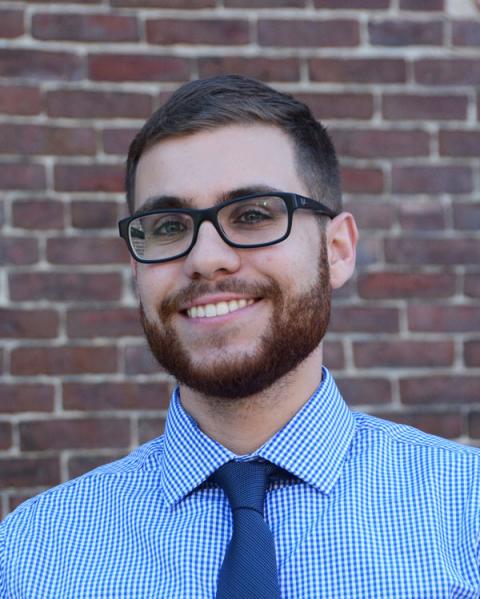
Michael Polizzotti earned his undergraduate degree in economics and political science at UNH Paul College and stayed on to get his master's degree. He says the person who influenced him the most was Professor Karen Conway, whose research and way of connecting the topics students were studying back to real world applications helped him develop confidence in pursuing a career in public policy research.
What was your overall UNH experience like? What did it teach you?
My undergraduate coursework was in economics and political science, with my graduate coursework focusing in economics. I realized in undergraduate that public policy was a field I was interested in from the perspective of being able to invoke change through research surrounding the facts of issues. A semester spent in Washington, D.C., during the spring semester of 2017 (my junior year at UNH) allowed me to experience the capital of the nation, while interning with the Department of the Interior, and see the different levels of policy research, creation, and advocacy. After my time in D.C., I spent my time outside of the classroom interning with the NH Division of Economic Development and the US Commercial Service to gain a sense of working with a variety of businesses throughout New Hamsphire, assisting them in exporting and expanding to new markets. The skills and interests I developed through my undergraduate coursework prepared my for the masters in economics program with Paul College. The program required several research projects, and through the guidance of several faculty, I was able to focus my research on the effects of public policy decisions on different populations. I was able to use this research as a stepping off point to my current career as a policy analyst at the NHFPI.
What person, course, or experience most influenced you while at Paul College? How?
The person who influenced me the most at Paul College was Professor Karen Conway. The research she conducted, and her constant connection of the topics we were studying back to real world applications, really made me confident in pursuing a career in public policy research. Professor Conway also challenged me a lot in the masters program. The assignments felt endless at times, but in hindsight, they had me apply what I learned in the coursework to practice. I gained a wealth of skills, in data analysis, research design, and time management.
What has your career path been like? How did you end up where you are?
My current job is with the New Hampshire Fiscal Policy Institute as a Policy Analyst. NHFPI is an an independent nonprofit organization dedicated to exploring, developing, and promoting public policies that foster economic opportunity and prosperity for all New Hampshire residents, with an emphasis on low- and moderate-income families and individuals. We conduct analyses on the state budget and revenue, an into policy changes including those surrounding health, economic security, etc.
My role is to produce a range of publications and materials, including reports, fact sheets, blog posts, data snapshots, presentations, and other communications designed to inform and enhance public policy conversations. I conduct research on a variety of public policy decisions, compile and analyze data, create and conduct presentations, and interact with a variety of individuals form state officials to members of the media.
What has your time in the "real world" taught you as it pertains to your career?
I think the biggest piece of advice I have is to keep up to date on the research in the field. I ended up subscribing to a few newsletters that published news in new economics research and that really did get me up to data with economics as a field of study. I was interested in the variety of topics that economics research covered, ranging from health to migration changes. Another piece of advice, as cliche as it sounds, would be to talk to the economics faculty and students. Someone is most likely conducting research on a topic that you find interesting and its a great way to get a first world view on whats research in economics looks like.